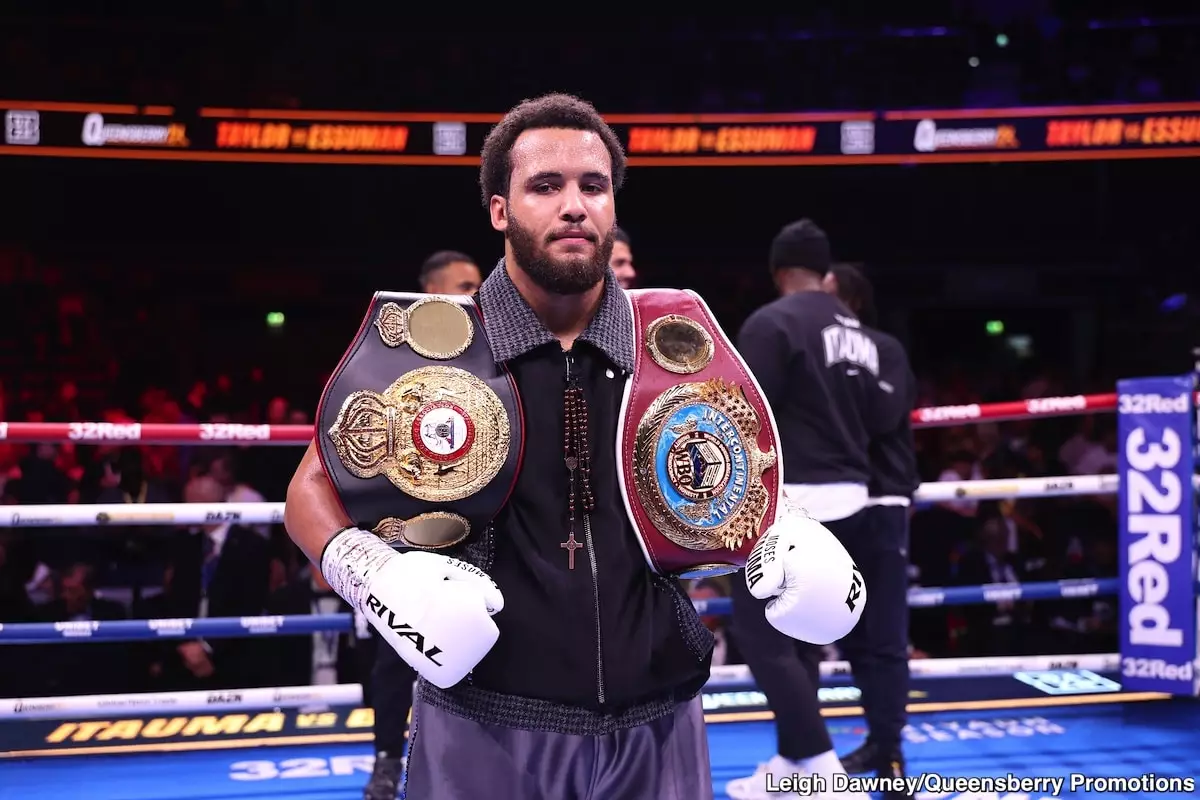In the world of heavyweight boxing, few matchups ignite more anticipation than a face-off between proven champions and emerging prodigies. The upcoming speculative bout between Oleksandr Usyk, an established two-time, four-belt titan, and the promising 20-year-old contender Moses Itauma embodies this very clash. While some critics dismiss Itauma’s chances, labeling him as too inexperienced for the seasoned ring genius that is Usyk, the fight’s potential signifies a spotlight on the sport’s evolution. It challenges the traditional hierarchy and beckons fans to consider whether the new generation can indeed dethrone the veterans or if experience will continue to dominate the landscape.
Usyk, at 38, remains in phenomenal shape, demonstrated vividly in his recent dominant victory over Daniel Dubois at Wembley. His agility, strategic genius, and ring intelligence have already cemented his legacy. Yet, age inevitably raises questions about longevity—how long can a fighter at his elite level sustain his dominance? Critics might argue that Usyk’s window is closing and that delaying the inevitable clash with Itauma only prolongs the waiting game. Nevertheless, the champion himself has indicated he might continue to fight, leaving the door open for ambitious matchups that could redefine the division.
The Promise and Peril of Youth
Itauma, on the other hand, embodies the raw, unrefined energy of youth paired with significant talent. His record of 12 wins, predominantly by knockout, hints at immense power, speed, and technical prowess rare for his age. His upcoming fight against veteran Dillian Whyte sets the stage for a crucial test—one that could either elevate his stock or expose vulnerabilities. Critics dismiss him as unready for a confrontation with Usyk, cautioning that rushing him into such a high-stakes fight risks undermining his development. But from a promotional and strategic perspective, sparking debate around this matchup captivates fans hungry for fresh rivalries and new champions.
The notion that Itauma could stand toe-to-toe with a ring strategist like Usyk is provocative. It questions whether raw talent, when combined with tactical growth, can overcome experience and historical pedigree. While skeptics worry about his inexperience, supporters argue that in a sport where power and speed often determine outcomes, a young lion’s ferocity could surprise even the most seasoned predators. In essence, this potential fight daringly blurs the line between growth and risk, making it an alluring proposition.
Vying for Legacy: The Future of Heavyweight Boxing
The motivations behind Turki Alalshikh’s desire to see this matchup come to fruition aren’t solely about immediate entertainment—they symbolize a broader shift in heavyweight boxing. Promoters and fans alike crave new stars who can carry the torch forward, and Itauma’s emergence could mark the dawn of a new era. Usyk’s acknowledgment of Itauma’s talent hints at a recognition that the current dynamics are evolving; the sport’s future might lie in younger, faster, more adaptable fighters who challenge the old guard.
False assumptions about readiness should not overshadow the raw excitement and unpredictability this encounter promises. Given the right circumstances and strategic staging, a clash between Usyk and Itauma could become a historic turning point, illustrating whether the mantle of heavyweight supremacy truly passes on to the new generation or remains anchored by the seasoned veterans. The world waits with bated breath to see if these two fighters, separated by experience and age, can piece together a narrative that defines the sport’s next chapter.

